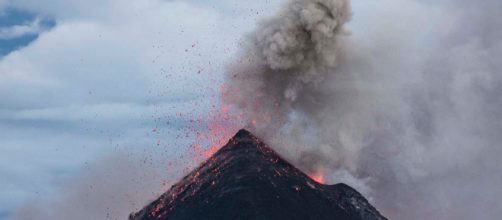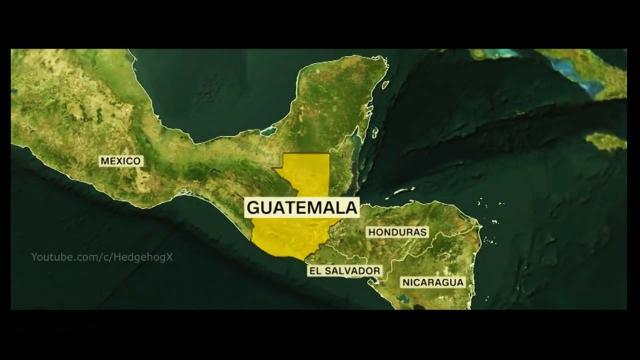Volcan de Fuego, a volcano in Guatemala, erupted yesterday and, according to reports, is the volcano's most violent eruption in 40 years. At least 25 people are dead, including three children; 300 are injured and many more are said to be missing according to local officials. Fuego, meaning Fire, spewed a five-mile stream of lava, gas, rocks, ash, and smoke that came down on the capital and other regions. The volcano towers about 40 km (25 miles) south-west of the capital. According to the BBC, the lava flow was moving so fast that residents had virtually no time to get out - dying in their homes as a result.
Guatemala‘s main airport has been closed down and president Jimmy Morales has declared state of emergency and three days of national mourning to grieve the loss of those killed by the eruption.
Fuego's deadliest eruption since 1902
Fuego‘s last big eruption in 1974 destroyed many nearby farms but there were no casualties reported. It also erupted last February but didn‘t last long. This eruption, however, is considered to be much greater and is said to be the deadliest since 1902, when Fuego erupted and killed thousands of people. The ash cloud has reached up to 6 km in the air and the lava moves at an extreme speed. This is called a pyroclastic flow and can reach up to 700 degrees Celsius. Pyroclastic flow is unlike slow-moving lava, which gives people a chance to flee their homes, BBC reports.
The bodies of victims lay on the ground as hundreds of police officers, emergency workers, soldiers and other rescue workers attended the wounded. Both workers and guests were evacuated from the ‘La Reunion’ golf club near Antiqua.
Death toll is expected to rise
According to Guatemala‘s disaster agency, 3100 people have been evacuated. Around 1.7 million people live in Guatemala and all are being affected by the violent eruption. Unfortunately, the death toll is expected to rise. Shelters have been open for those forced to flee on foot from their homes, leaving all of their belongings behind. In a radio interview, Sergio Cabanas, the General Secretary of Guatemala‘s Conred Disaster Agency, feared the worst.
“El Rodeo was buried and we haven‘t been able to reach the La Libertad village because of lava, maybe there are people that died there too,” he said. Rescuers are still trying to reach villages that are feared to have been demolished by the lava and ash. People have been advised to use face masks to protect themselves from the poisonous gas and authorities have urged residents living near the volcano to evacuate immediately.




